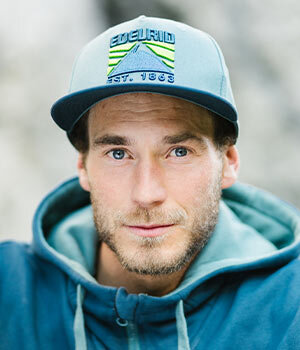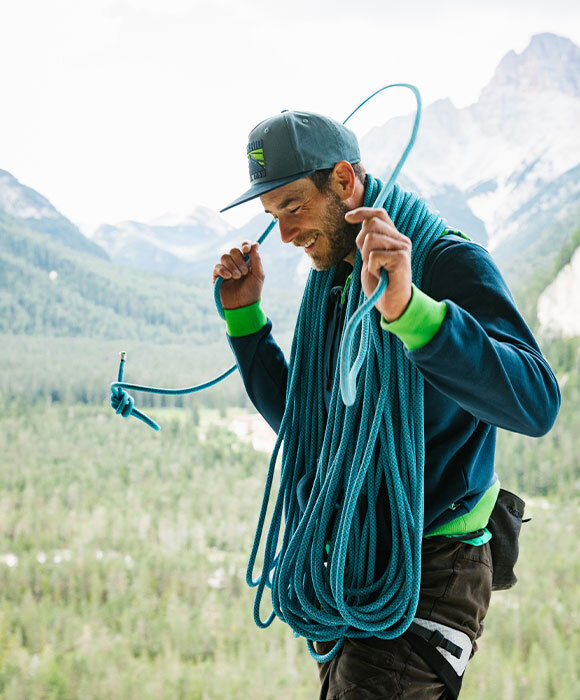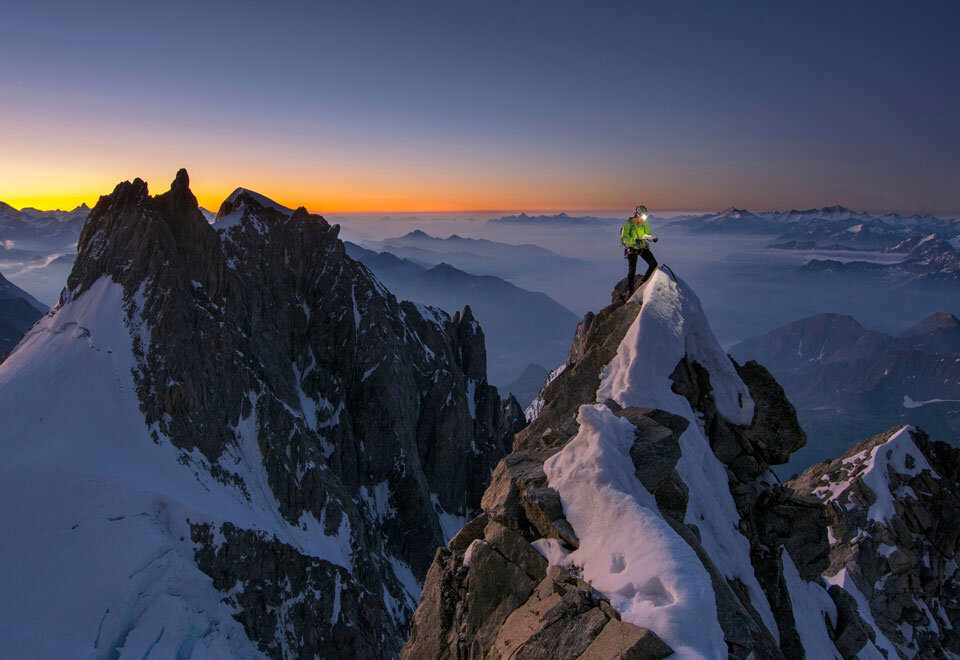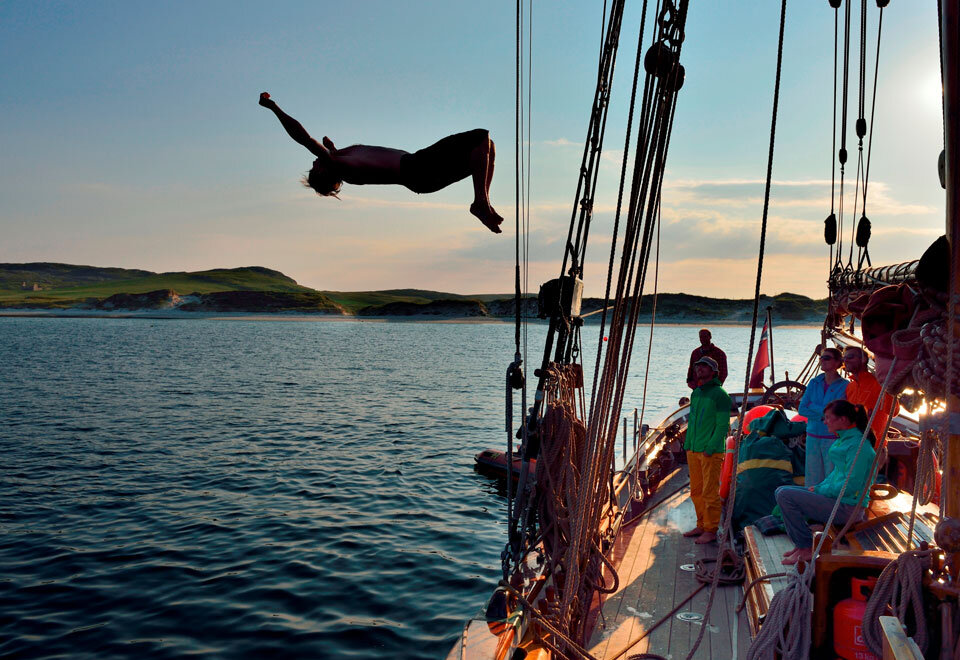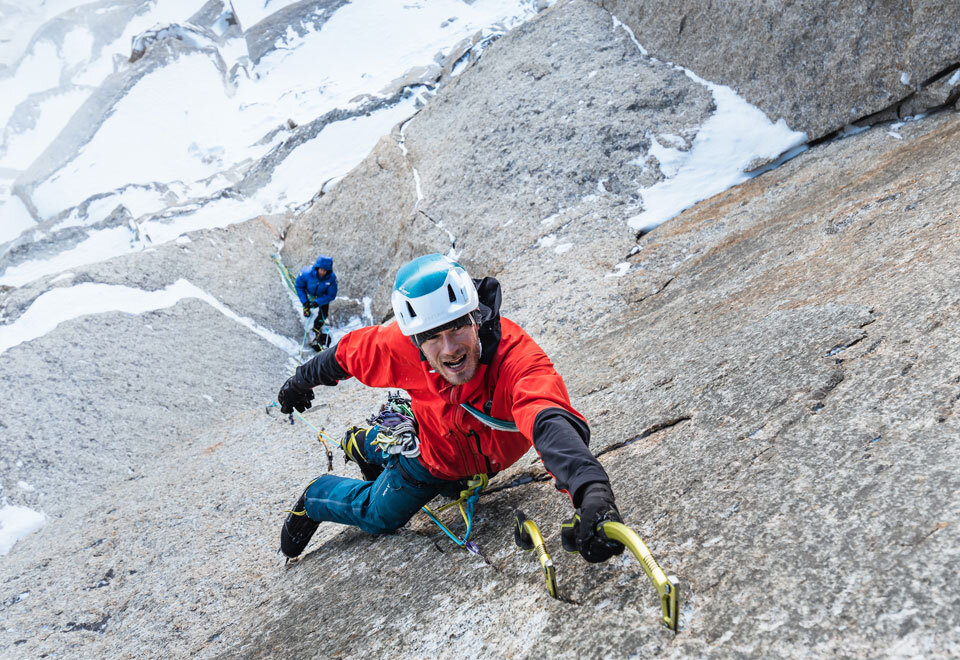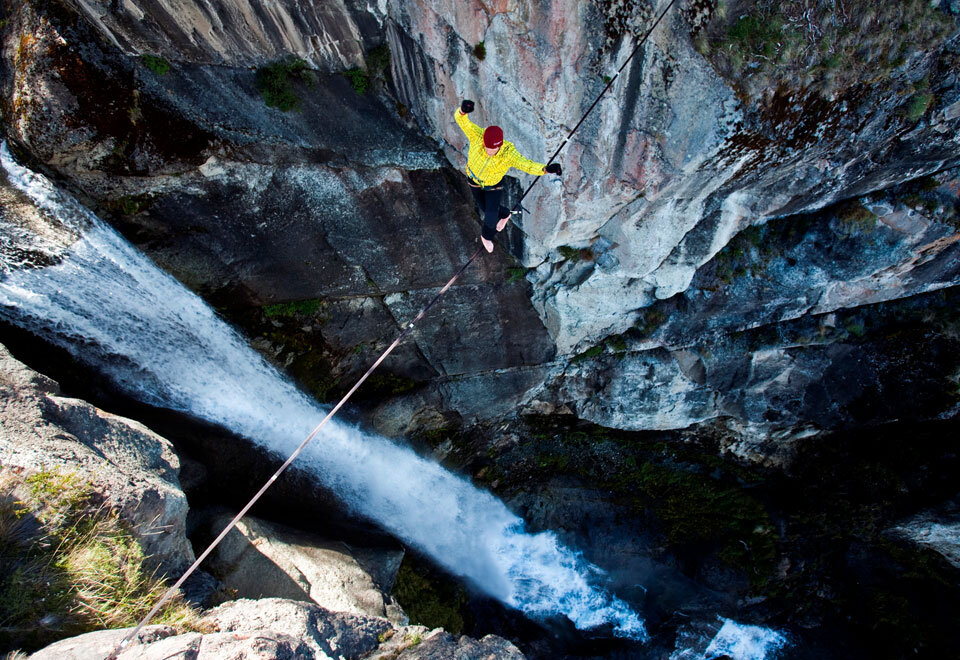Wann und wie hast du mit dem Klettern angefangen? Was hat dich so am Sport gefesselt, dass du dabei geblieben bist?
Vom Klettern war ich schon immer fasziniert, ohne darüber nachzudenken, warum. Leider habe ich ziemlich lange gebraucht um zu begreifen, dass es an mir liegt, etwas daraus zu machen. Mit ca. 20 war es soweit. Bis dahin: viele schöne Klettertage an den Felsen der Schwäbischen Alb und ein paar leichte Routen in den Alpen.
Wer war in deiner Kindheit dein Held/deine Heldin für dich?
Es gab ziemlich viele…
Siehst du dich jetzt selbst manchmal als Vorbild für andere? Wie beeinflusst es dich, dass andere Kletterer zu dir aufsehen?
Ich hoffe, dass ich in gewisser Weise Vorbild für andere sein kann. Das bedeutet aber auch eine große Verantwortung, über die Grenzen des Bergsports hinaus – keine ganz einfache Aufgabe.
Was waren die wichtigsten Meilensteine in Deinem Leben (klettertechnisch und lebensphilosophisch)? Waren dir diese immer sofort bewusst, oder erst im Nachhinein?
Mit Anfang 20 habe ich meine Arbeit gekündigt, um zu klettern. Zu diesem Zeitpunkt war ich weder besonders gut, noch erfahren – nur unglaublich motiviert. Es folgten DAV Expeditionskader und Bergführerausbildung, womit eine gewisse Richtung vorgegeben war…
Was waren deine größten Misserfolge, Rückschläge, oder schlimmsten Verletzungen? Wie gehst du damit um und wie bist du davon zurückgekommen?
Klar, nicht alles ist schön, was man in den Bergen erlebt. Aber richtig hart es mich zum Glück noch nicht getroffen. Danke, meine Schutzengel, ihr seid die besten!
Was ist deine beste Klettergeschichte / dein bestes Klettererlebnis
Drei besondere Erlebnisse von vielen:


